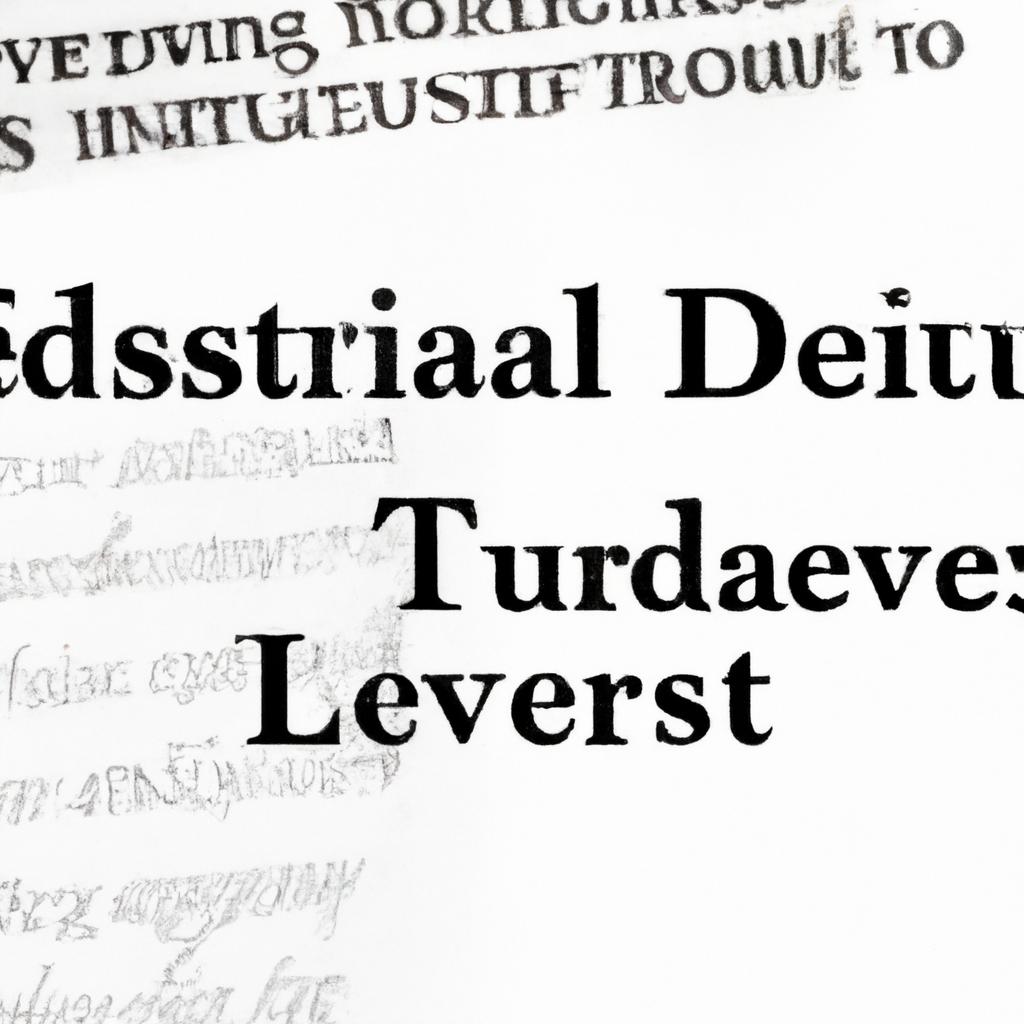In the complex world of estate planning, the use of irrevocable trusts often sparks curiosity and confusion among clients. One common question that arises is whether irrevocable trusts are public record. As experienced lawyers at Morgan Legal Group in New York City, we are here to shed light on this important aspect of estate planning. Join us as we navigate the intricacies of irrevocable trusts and explore the question of their public visibility.
– Understanding the Privacy of Irrevocable Trusts: Are They Public Record?
Irrevocable trusts are a powerful tool in estate planning, offering benefits such as asset protection, tax advantages, and the ability to control how your assets are distributed after your passing. However, one common concern for individuals considering setting up an irrevocable trust is whether their personal information will become public record.
In the case of irrevocable trusts, privacy is a key advantage. Unlike probate court proceedings, which are a matter of public record, irrevocable trusts are typically not made public. This means that the details of the trust, including the assets it holds and the beneficiaries named, are not readily accessible to the general public. This confidentiality can be important for individuals who value their privacy and wish to keep their financial affairs out of the public eye.
– Exploring the Legal Implications of Irrevocable Trusts and Public Disclosure
When it comes to irrevocable trusts, one of the key concerns for many individuals is whether these trusts are public record. In general, irrevocable trusts are private documents that are not typically filed with any court or government agency, unlike a will which becomes public record upon the testator’s death. This level of privacy can be attractive to many individuals who wish to keep their financial affairs confidential.
However, it’s important to note that there are certain situations where the details of an irrevocable trust may become public. For example, if a dispute arises over the trust, it may be necessary to disclose certain information in court. Additionally, some states require trustees to provide beneficiaries with certain information about the trust. Overall, it is crucial to work with an experienced attorney who can help navigate the legal implications of irrevocable trusts and ensure that your wishes are carried out effectively.

– Recommendations for Maintaining Privacy in Irrevocable Trusts
In order to maintain privacy in irrevocable trusts, it is crucial to take certain precautions to ensure that sensitive information remains confidential. One recommendation is to limit the disclosure of trust-related information to only essential parties involved in the trust administration. This can help prevent unnecessary exposure of personal details to outside sources. Additionally, consider utilizing non-disclosure agreements with individuals who have access to trust information to further safeguard privacy.
Another important step in maintaining privacy in irrevocable trusts is to carefully assess the information that is included in trust documents. Avoid including unnecessary personal information that could potentially compromise confidentiality. In addition, consider utilizing privacy protection measures such as incorporating privacy clauses within trust agreements to further safeguard sensitive information. By taking these proactive measures, individuals can help ensure that the details of their irrevocable trusts remain private and confidential.
– Navigating State-Specific Laws Regarding the Public Record Status of Irrevocable Trusts
When it comes to irrevocable trusts, navigating state-specific laws regarding their public record status can be a complex and nuanced process. In some states, irrevocable trusts are considered public records, while in others, they are not. Understanding the laws in your state is crucial to ensure compliance and protect the privacy of trust beneficiaries.
- In states where irrevocable trusts are considered public records, individuals can easily access information about the trust, including its terms and beneficiaries.
- On the other hand, in states where irrevocable trusts are not public records, this information is kept confidential and is not readily available to the public.
| State | Public Record Status |
|---|---|
| New York | Not public record |
| California | Public record |
| Florida | Public record |
Q&A
Q: Are irrevocable trusts public record?
A: No, irrevocable trusts are not public record. This means that information regarding the assets and beneficiaries of the trust is not readily available to the general public.
Q: How can someone find information about an irrevocable trust?
A: While information about irrevocable trusts is not easily accessible to the public, interested parties such as beneficiaries, trustees, and heirs may be able to obtain information by directly contacting the trust’s trustee or attorney.
Q: What are some advantages of irrevocable trusts not being public record?
A: One advantage is increased privacy for both the settlor and beneficiaries of the trust. This can help protect sensitive financial information and assets from prying eyes or potential creditors.
Q: Are there any drawbacks to irrevocable trusts not being public record?
A: One potential drawback is that the lack of transparency can lead to suspicions of fraudulent activity or disputes among beneficiaries. In some cases, this can result in costly legal battles to obtain information about the trust.
Q: Can the details of an irrevocable trust ever become public record?
A: In certain circumstances, such as during probate proceedings or if a lawsuit is filed involving the trust, some details about the trust may become public record. However, the overall privacy of the trust is still preserved to a large extent.
Closing Remarks
In conclusion, while irrevocable trusts may provide numerous benefits for estate planning, it is important to keep in mind that they are not always shrouded in secrecy. The public record aspect of irrevocable trusts can vary depending on jurisdiction and specific circumstances. Therefore, it is crucial to consult with a qualified legal professional to understand the implications and potential risks associated with creating an irrevocable trust. Ultimately, with careful consideration and expert guidance, individuals can navigate the complexities of trust administration and ensure their assets are protected for future generations.




